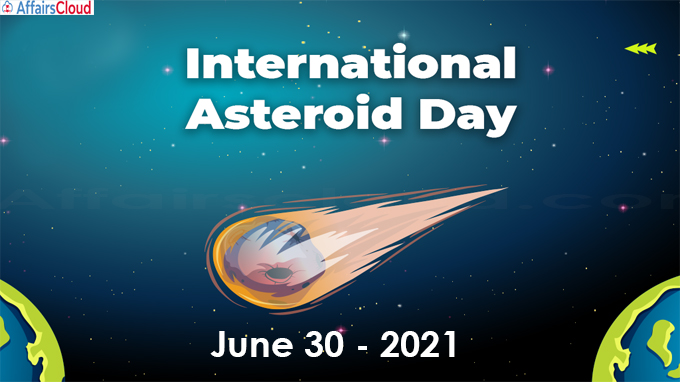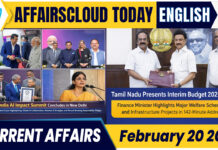 United Nations (UN)’s International Asteroid Day or Asteroid Day is a global awareness campaign annually celebrated across the globe on 30th June to create awareness and engage and educate the general public about the asteroid’s opportunities and risks.
United Nations (UN)’s International Asteroid Day or Asteroid Day is a global awareness campaign annually celebrated across the globe on 30th June to create awareness and engage and educate the general public about the asteroid’s opportunities and risks.
Aim:
- To create awareness about the hazards of asteroid impacts.
- To educate the public on the crisis communication actions which should be taken at the global level in case of Near-Earth Object(NEO) threat.
Background:
i.The Asteroid day was jointly founded by astrophysicist and famed musician Dr Brian May of the rock group Queen, Apollo 9 astronaut Rusty Schweickart, filmmaker Grig Richters, and B612 Foundation President Danica Remy.
ii.The United Nations General Assembly(UNGA) adopted the resolution A/RES/71/90 on 6th December 2016 and declared the 30th June as the International Asteroid Day.
iii.The UNGA made the decision based on the proposal of the Association of Space Explorers(ASE), endorsed by the Committee on the Peaceful Uses of Outer Space (COPUOS).
iv.The First International Asteroid Day was observed on 30th June 2017.
Why June 30?
Asteroid Day is annually observed on 30th June to mark the anniversary of the Siberia Tunguska event, the impact of the Tunguska asteroid in Siberia, Russian Federation on 30th June 1908. The Tunguska event is the Earth’s largest asteroid impact in History.
Significance of Asteroid day:
The Asteroid Day is a global program that provides online educational asteroid resources and produces a 24-hour global broadcast known as “Asteroid Day LIVE” from Luxembourg.
Efforts to prevent NEO impacts:
i.The United Nations Office for Outer Space Affairs (UNOOSA) has worked on NEO’s to recognise the hazards of the NEO impacts on global issues.
ii.The International Asteroid Warning Network (IAWN) and the Space Mission Planning Advisory Group (SMPAG) were established in 2014 based on the recommendations for an international response to a near-Earth Object impact threat, endorsed by the COPUOS in 2013.
- IAWN uses well-defined communication plans and protocols to support the governments in the analysis of possible consequences of an asteroid impact and to support the planning of mitigation responses.
- SMPAG, an inter-space agency forum, identifies the technologies needed for NEO deflection and aims to build consensus on the recommendations for planetary defence measures.




